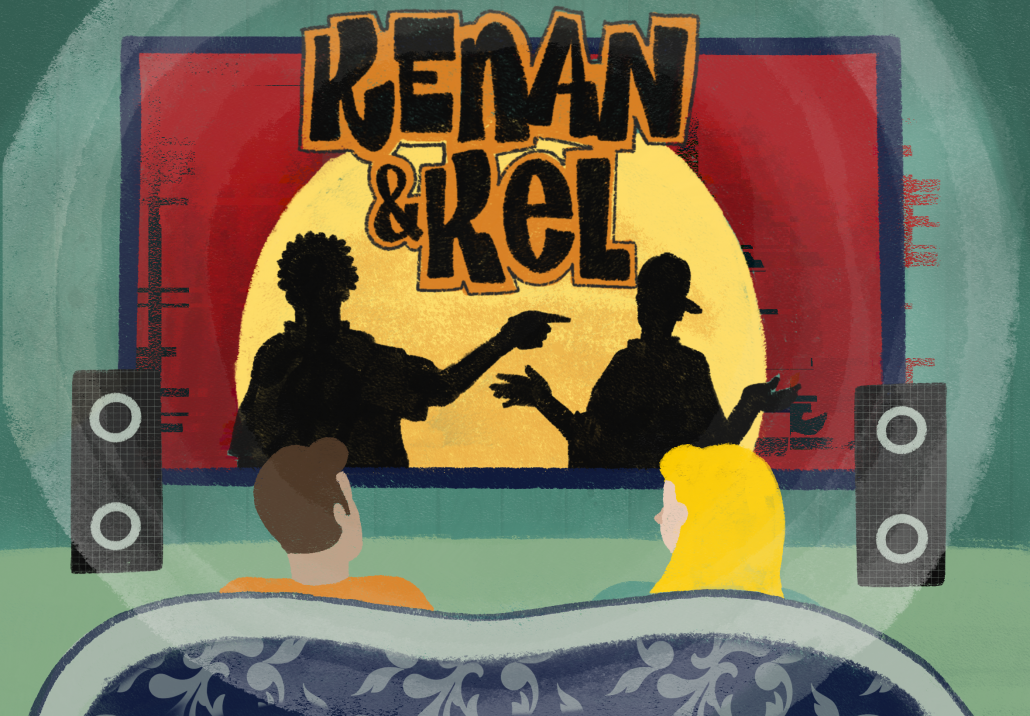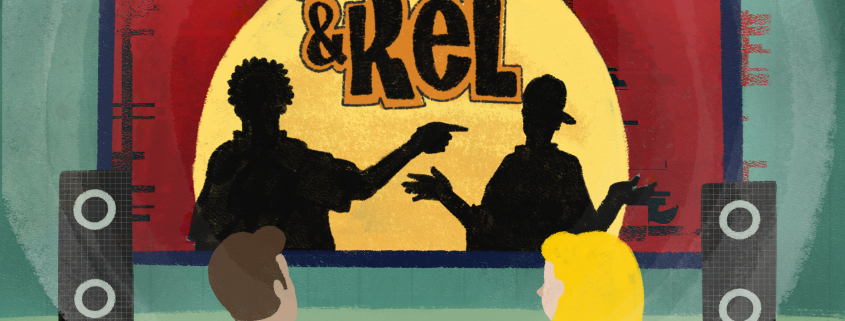Hustle and Fro: Is the era of the TV Black teen obsolete?

Do you know what I miss? The television sitcoms of the late ‘90s and early 2000s. Back then, young Black actors and actresses were at the center of television and humanized the young Black experience. Popular shows like “Moesha,” “One on One” and “The Fresh Prince of Bel-Air” took audiences through a day in the life of a Black teen that wasn’t inherently negative.
As of lately though, it seems like shows of that sort are few and far between. Whether new shows are geared closer to children like “Craig of The Creek” or for those who are in their late twenties like “High Fidelity,” it seems like the once-booming television genre starring young Black actors and actresses completely skips my age demographic.
It’s not like there aren’t shows for my age range at all, however. There’s a massive catalog of series that feature high school and college-aged people, like “Riverdale” and “13 Reasons Why.” But in shows like these, it’s usually a mainly white cast with a couple of Black characters sprinkled in.
Look at “Riverdale” specifically: the show does have a couple of Black characters like Toni Topaz (Vanessa Morgan), Peaches ‘N Cream (Bernadette Beck) and Chuck Clayton (Jordan Calloway). However, the way these characters are written is quite unattractive. In most cases, Topaz is a background character who is only recognized in scenes that deal with her girlfriend Cheryl Blossom (Madelaine Petsch), who is white. Clayton, on the other hand, is portrayed as sexually charged and unsympathetic.
Neither fair well in their characterizations of Black characters, even to the point where the cast has spoken out about it. In an interview with ELLE, Beck felt her character was there for diversity and to be the show’s antagonist.
“I was, for no reason, depicted in a very negative, unattractive light. And I’m not the first Black actress to show up on set, stand there, chew gum, and look sassy and mean,” Beck said. “I feel like I was just there to fulfill a diversity quota. It’s just to fulfill points.”
While a majority of shows happen to follow this casting archetype, there are shows that have diverse Black casts tailored to my age range. But, often, they only put Black characters in unnecessarily extreme situations.
The Netflix show “All American” follows a young Black football player, Spencer James (Daniel Ezra), from Los Angeles but, in the process, displays gangs, murder and drugs. Another show on Netflix, “Dear White People,” takes viewers through the lives of Black college students but at the same time puts them through extreme racism-plagued events.
While gang violence and racism may play a role in the everyday Black experience, it isn’t everyone’s experience and doesn’t need to be the sole story told on screen. At this rate, seeing a Black character in a show go to school, mentally and physically unscathed, would be refreshing.
I’ve come to realize that the age of a show’s creator is a crucial reason why it appeals to certain age demographics. Why do Black high school and college-aged people love watching shows like “Atlanta” and “Insecure,” even if they aren’t the target age range? It’s because creators like Issa Rae and Donald Glover probably grew up watching “Kenan and Kel,” “The Parkers” and “Sister, Sister,” and know how to write for a young Black audience.
Creators like these took the torch of young Black television of the ‘90s and early 2000s and brought it to the present for millennials. But while I enjoy these shows about Black millennials navigating the worlds of dating, careers and having children, I’m just not there yet.
So now I must know, who will create the positive relatable content for the Black teens and early twenty-somethings of my generation? With diversity and inclusion on the rise in Hollywood, it would only make sense that this gap in programming would be filled. The era of the Black teen is not obsolete, and honestly, I can only watch “The Fresh Prince” and “Moesha” so many times.
Marlize Duncan is a rising junior writing about Black social issues and their intersection in the entertainment industry.

